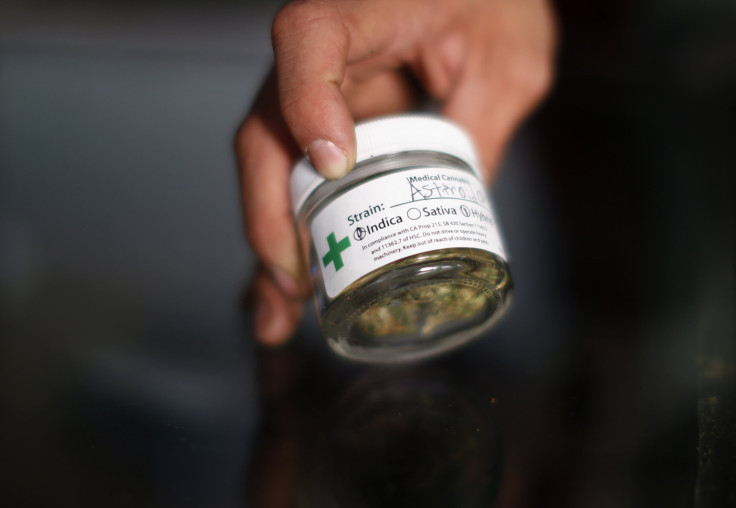Marijuana News: Why Cannabis Remains The Enemy Of US Health Agencies

There's arguably no industry generating more excitement right now than legal marijuana. Last year, Canada became the first industrialized country in the world to legalize the use of recreational cannabis, with 33 U.S. states also giving the green light to medical marijuana since 1996. What had once been a completely taboo topic has become relatively mainstream throughout North America and much of Europe.
Of course, what investors are really waiting for is some form of change at the federal level in the United States. The U.S. is projected to be the leading cannabis market in the world in terms of future sales -- and it's not even close right now. Bank of America/Merrill Lynch and Stifel foresee U.S. weed sales accounting for 33% to 50% of global revenue, which would make the U.S. the most lucrative marijuana market in the world for businesses and investors.
We've also witnessed soaring support for legalization. The October 2018 Gallup poll found that 2 out of 3 Americans now favor broad-based legalization, up from just 25% a quarter-century earlier. Further, a separate survey from the independent Quinnipiac University showed that better than 9 out of 10 support the idea of physicians being able to prescribe medical cannabis to patients.
All signs would appear to point toward some sort of reform away from the drug's current classification as a Schedule I (i.e., illicit) substance. And yet, the prospects for rescheduling or removing marijuana from the controlled-substances list remain bleak.
The U.S. Surgeon General issues a warning on adolescent and pregnant cannabis use
On one hand, Congress has given little indication that it plans to tackle cannabis reform. Democrats in the House have moved to ease banking restrictions on legalized states -- however, Senate Majority Leader Mitch McConnell appears steadfast in not allowing any marijuana legislation to reach the floor for vote. Republicans have traditionally taken a more negative view of marijuana's expansion, meaning it would likely take a Democrat-controlled Congress before there's any chance of legalization occurring.
The other problem is that leading health officials and regulatory agencies don't favor the idea of legalizing cannabis, period. And that was on full display last week when U.S. Surgeon General Jerome Adams issued an advisory entitled "Marijuana Use and the Developing Brain."
Specifically, Adams' advisory hits on a number of worrying trends, including growing marijuana use among adolescents, as well as women who are pregnant.
The data presented shows that tetrahydrocannabinol (THC) concentration in cannabis plants tripled from 4% to 12% between 1995 and 2014 -- THC is the psychoactive cannabinoid that gets users high -- and points out that dependency, addiction, and other negative consequences are possible with higher potency levels. For those curious, the advisory notes that THC concentration in some legal dispensaries pushes to between 17.7% and 23.2% THC levels, with concentrate products offering considerably higher THC levels.
The advisory also finds, via a national survey, that marijuana use among pregnant women doubled to 7% from 3.4% between 2002 and 2017.
Marijuana remains the enemy of U.S. health officials
What Adams notes in the advisory is more or less a continuation of what we've been hearing from the Food and Drug Administration (FDA) and Department of Health and Human Services for years -- namely, that legalizing cannabis is a bad idea since it would open the door to easier adolescent access, potentially harming their still-developing brains in the process.
With the FDA holding a negative view on cannabis, slow-stepping cannabidiol (CBD) regulation, and now Adams issuing a worrisome advisory on adolescent cannabis trends, it's pretty clear that marijuana remains the enemy of health researchers and regulatory agencies in the United States. Adams may not have used that exact terminology when issuing his thoughts, but the message is pretty clear from the advisory's foreword:
"I, Surgeon General VADM Jerome Adams, am emphasizing the importance of protecting our Nation from the health risks of marijuana use in adolescence and during pregnancy. Recent increases in access to marijuana and in its potency, along with misperceptions of safety of marijuana endanger our most precious resource, our nation's youth."
It may not be all-systems-go for a long time
Without the support of U.S. health regulatory agencies, it's going to be one heck of an uphill climb for cannabis reform to gain traction at the federal level. And as noted, it would also likely require a Democrat-controlled Congress for any reform or legalization to take place.
For established Canadian pot stocks, Adams' advisory is another kick in the shin. With the New York Stock Exchange and Nasdaq not allowing companies that deal with marijuana in the U.S. to list their shares, industry giants like Canopy Growth (NYSE:CGC) are forced to patiently wait on the sidelines for things to change at the federal level. All the while, vertically integrated multistate dispensary operators in the U.S. continue to expand their presence in legal states, gobbling up market share well in advance of a possible entrance by Canada's major players.
The aforementioned Canopy Growth is the only Canadian player thus far to have a contingent deal in place to move directly into the U.S. pot market, if legalized federally. In April, Canopy Growth offered to buy Acreage Holdings for $3.4 billion in a cash-and-stock deal... with a contingency. The contingency is that the U.S. has to legalize marijuana at the federal level. Should that happen, not only will Canopy have hemp-processing infrastructure already on U.S. soil but a network of grow farms, processing sites, and retail locations throughout major U.S. markets.
Unfortunately, it could be a long time before it's all systems go for the pot industry. That means any significant Canadian investments, including those from Canopy, could sit idly by for years before they begin paying dividends.
Sean Williams owns shares of Bank of America. The Motley Fool recommends Nasdaq. The Motley Fool has a disclosure policy. This article originally appeared in the Motley Fool.





















